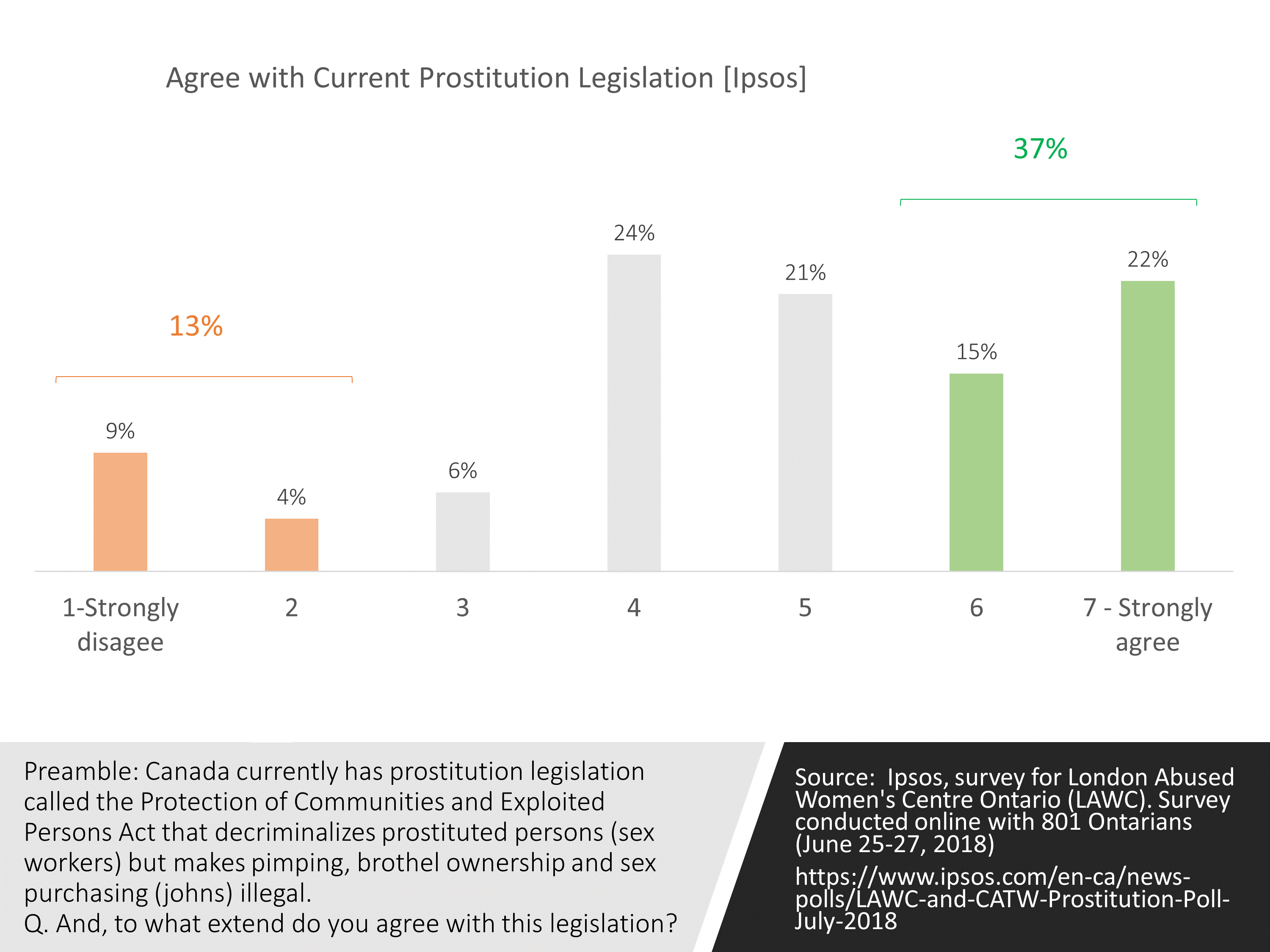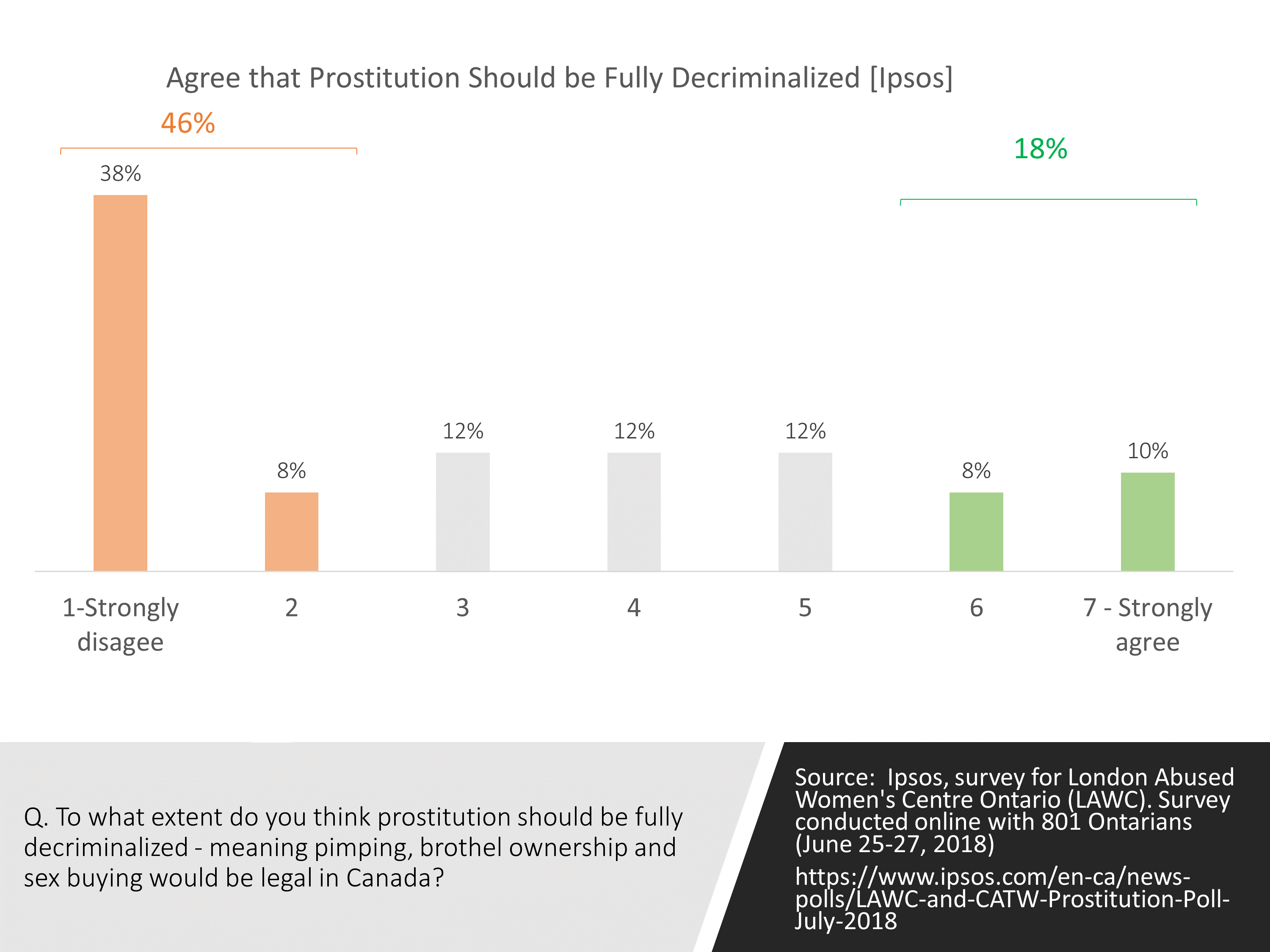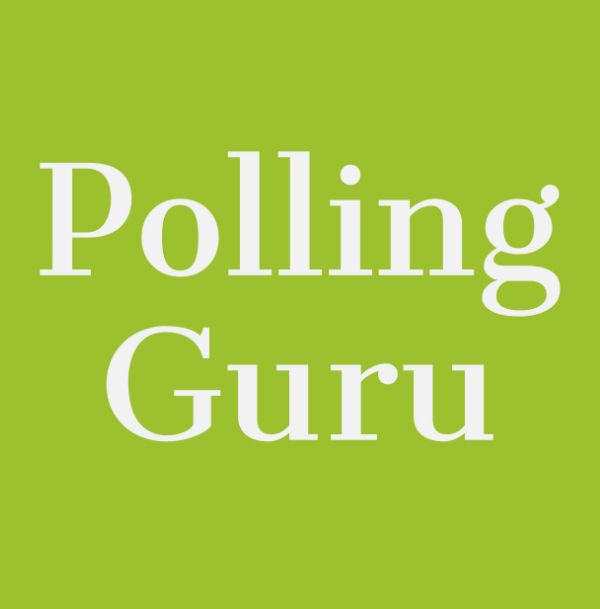Not surprisingly Ontarians think that prostitution is harmful to women and girls. As such they would not support prostitution as a a career for their daughter, sister or family member. The poll, conducted by Ipsos for the London Abused Women’s Centre, highlights the fact that while Canadians were divided about legalizing prostitution (with a slight majority in favour) the moral and value objections were felt strongly.
Prostitution laws changed in 2014 to make the selling of sex legal but maintaining restrictions on purchasing and other aspects of the transaction illegal. The change was spurned by the Supreme Court and in many respects the public supported decriminalizing prostitution. Our earlier review of survey results indicated that by 2005, a slim majority (50.6%) endorsed the view that prostitution should be legal. At the time, legalizing prostitution to take the criminal element out was a strong narrative in driving support.
Current support for the Law
The poll shows that 37% strongly or somewhat strongly agree (top 2 box) with the current legislation (58% are on the agree side (5,6,7). Few people are against the law and many are neutral. Twenty-four percent take the middle position,which should probably be considered a neutral position on this scale).

The survey also tested the proposition that the law should be further liberalized. Here Ontarians show little appetite for fully decriminalizing prostitution. It is worth noting that the meaning of decriminalization is fully spelled out in the question, which includes pimping and brothel ownership. If these were separately tested, we might find that support varies by the type of activity.

Community Standards
Few Ontarians would support prostitution as a job for their daughter, sister of family member (5% top 2 box agree). Almost as few (7%) would support their son, brother, husband or family member paying a prostitute for sexual services. This is a strong indication that prostitution is rejected for moral/ ethical grounds. Ontarians also see significant harm for women and girls (62% top 2 box agree).
Implications
The Supreme Court handed legislators a difficult task when it forced them to rewrite the prostitution legislation. Prostitution may be the oldest profession but public opinion on it is multi-faceted. Public attitudes about a policy response trigger different norms and values — morality, sexual freedom, gender-based violence, cultural attitudes about women — and reconciling them into a new law was going to challenge the Government. Don’t forget that government’s were not able to resolve this for abortion [no new law was passed after the Supreme Court found the previous law unconstitutional].
The government response in this case, arguably, was to move the legislation as incrementally as possible. In contrast, recent governments have moved in the direction of more personal autonomy and less government restrictions based on moral or ethical grounds (e.g. same-sex marriage; assisted dying; legalizing marijuana) in other areas. A decision that certainly opens up the potential for future legal challenges. It also does not address many of the safety issues prostitutes face. Nevertheless it was in step with Canadian views at the time.
The main difference from other issues is that there was not a national narrative about the need for change, no national leadership pushing for more liberalization, and likely little grass roots discussion of the need for liberalization given the “community values” against prostitution reflected in this survey. It is hard to imagine buyers of prostitution services openly communicating this fact in their social circles.
Source: An online survey conducted by Ipsos for the London Abused Women’s Centre Ontario (LAWC). The survey of 801 Ontarians was in field between June 25 and 27, 2018. Release

